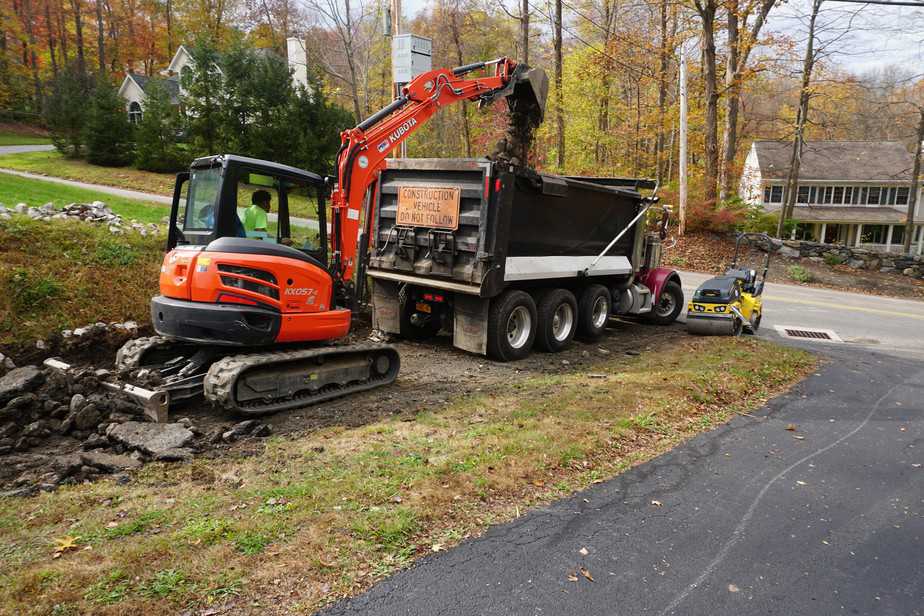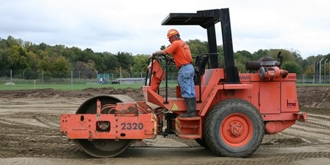Industrial Lancaster Trenching - Trenching Solutions for Services in Lancaster
Industrial Lancaster Trenching - Trenching Solutions for Services in Lancaster
Blog Article
Comprehensive Excavation Approaches: Understanding the Basics for Success
The careful planning, precise execution, and meticulous attention to information called for in excavation tasks require a detailed technique that includes different fundamental aspects. The true mastery lies not just in recognizing these principles yet in seamlessly integrating them to navigate the intricacies of excavation tasks with finesse.
Understanding Excavation Project Planning

Successful excavation tasks are constructed on the foundation of extensive and meticulous preparation. The first stage of any type of excavation project is the drawing board, where crucial choices are made that can substantially impact the end result of the project. Throughout this phase, it is vital to gather all pertinent information concerning the site, including topographical studies, soil make-up, and any prospective hazards that may exist. Understanding the job budget, range, and timeline restrictions is essential for developing a comprehensive excavation plan that makes sure the task's success.
One key facet of excavation job planning is the growth of a thorough timeline that lays out the series of milestones, tasks, and due dates. By thoroughly thinking about all these aspects throughout the planning phase, excavation jobs can be performed effectively and effectively, leading to successful results - excavating ohio.
Dirt Evaluation and Website Assessment
Conducting complete soil evaluation and site analysis is an important action in the prep work stage of any excavation task. Dirt evaluation includes identifying the structure, structure, and homes of the soil at the excavation website. This information is essential for comprehending the dirt's bearing capacity, dampness material, and capacity for disintegration, which are crucial aspects in figuring out the excavation approaches and equipment required for the project.
Site examination surpasses soil analysis and encompasses a wider assessment of the general website problems. This evaluation consists of identifying any prospective hazards, such as underground energies, environmental worries, or unpredictable surface, that can impact the excavation process. By extensively examining the site, project managers can create efficient excavation techniques that prioritize safety and security, efficiency, and environmental protection.
Utilizing advanced modern technologies like ground-penetrating radar, dirt sampling, and drone studies can enhance the accuracy and efficiency of soil evaluation and website analysis. Investing time and resources in these preliminary steps can ultimately save time and prevent expensive hold-ups or complications during the excavation procedure.
Devices Option and Utilization
Effective excavation tasks depend heavily on critical devices option and application to make sure optimum performance and efficiency. Picking the ideal devices for the job is crucial in optimizing efficiency and decreasing downtime. Elements such as the kind of dirt, depth of excavation, and job scope play a considerable duty in establishing one of the most appropriate tools for the task available.

In enhancement to choosing the appropriate equipment, appropriate use is crucial to task success. Operators has to be educated to take care of the tools securely and successfully - excavating ohio. Routine maintenance checks and timely repair work assist avoid break downs and guarantee consistent efficiency throughout the task
Precaution and Laws Compliance
In the content realm of excavation tasks, focusing on precaution and compliance with policies is critical to guaranteeing a protected and legally audio operational environment. Precaution include a range of practices, consisting of carrying out complete site evaluations, executing proper signs and obstacles, and supplying appropriate security training for all workers associated with the excavation procedure. Adherence to guidelines, such as OSHA demands in the USA, makes certain that the excavation job meets the essential requirements to safeguard employees, onlookers, and the surrounding atmosphere.

Tracking Development and Adjusting Methods
Exactly how can predict managers properly track the development of excavation tasks and adapt their methods accordingly to maximize outcomes? Surveillance progress is essential for making sure that excavation jobs remain on track and meet deadlines.

Verdict
Finally, understanding the basics of comprehensive excavation approaches is necessary for the success of any type of project. By recognizing project preparation, examining soil and website conditions, picking suitable equipment, following safety laws, and keeping an eye on progress, task managers can make certain a smooth and reliable excavation procedure. Carrying out these techniques will certainly result in successful results and lessen prospective risks or troubles during the excavation project.
The first stage of any excavation task is the planning phase, where crucial choices are made that can considerably influence the result of the project. Comprehending the task scope, budget plan, and timeline constraints is vital for creating an extensive excavation strategy that makes certain the project's success.
How can forecast supervisors properly track the advancement of excavation projects and adjust their approaches as necessary to optimize outcomes? By closely checking progress and being prepared to adjust techniques, project managers can enhance the overall success of excavation projects.
By understanding project planning, analyzing soil and site problems, picking ideal tools, abiding with safety and security regulations, and monitoring progress, project managers can make certain a smooth and efficient excavation procedure.
Report this page